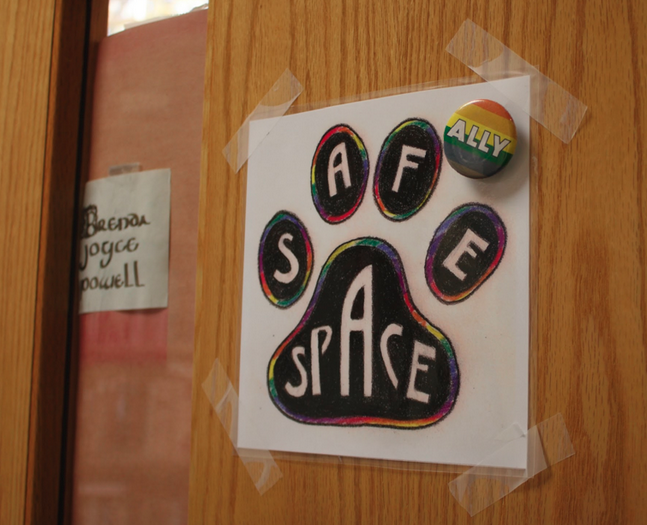St. Thomas Human Resources is sponsoring a five-part training series intended to broaden awareness of LGBT people and topics as part of St. Thomas’ commitment to a diverse and inclusive community.
The training, open to all faculty and staff, paid special attention to LGBT concepts and how they manifest themselves within the St. Thomas community. Carey Winkler, director of bachelor of social work field education and a training instructor, said the series is offered to help improve the campus climate.
“Overall I would say it is really meant to provide education, resources and a space for dialogue to ultimately improve the campus climate for LGBT students, staff and faculty,” Winkler said.
She said the results from the Campus Climate Survey in 2013, which aimed to gauge the strengths and weaknesses of St. Thomas’ campus environment, partly motivated the training series.
Vernon Klobassa, director of student engagement and co-instructor of the training, added that data from the survey suggested St. Thomas was not necessarily a welcoming environment for all members of the community.
“If you dive into the climate survey data, there are differences in how welcome students, faculty and staff who identify as LGBT feel on campus,” Klobassa said. “In terms of impetus, we’ve got data that shows that those folks aren’t feeling as welcome, and (the training) is one thing we can do to help.”
The series included five training modules covering important topics related to the LGBT community. The most recent session covered intersectionality.
Participants learned information about intersectionality, which describes how social inequality is experienced as an “intersection” of several forms of discrimination. They then engaged in an activity designed to highlight preconceived notions about LGBT people before finishing the session by discussing ways to work toward a non-exclusive environment at St. Thomas.
Some changes being made to create a more inclusive environment include unisex bathrooms in the student center and more inclusive language in university documents. Winkler said that despite having much work to do, she has already noticed change on campus.
“I’ve definitely seen change in the time I have been here in terms of people engaging in more dialogue and asking more questions and in taking more action,” she said. “I think one of the most exciting things about this training series was what the participants brought in terms of what they took away and put into action in their own work.”
Sandy Bauer, a program coordinator for the Opus College of Business, participated in the training and echoed Winkler’s views of change, recommending attendance if future training is offered.
“I see positive changes in the university,” Bauer said. “I think this would be a great program for people to attend and gain a better understanding of this community, regardless of (what background) you’re coming from.”
Another participant, Lindsey Loree, an interlibrary loan assistant at the O’Shaughnessy Frey Library, left training with the belief that learning about LGBT people and topics is important for all members of the St. Thomas community.
“We’ve heard so much in the news, and I’ve also seen it firsthand … students and even adults being bullied or discriminated against for being in the LGBT community,” Loree said. “I think everyone has some part to play in mitigating that experience for those people.”
Loree also stressed that St. Thomas is not immune to these instances of discrimination.
“I’ve seen firsthand people on this campus, during my undergraduate years, facing some type of harassment,” she said. “I just think nowhere is immune to this kind of incidence happening.”
William Faust can be reached at faus5612@stthomas.edu.




Since this is for all purposes a Catholic school and a Catholic campus, I would hope that this series of training sessions would begin with the Catholic Church’s teaching on homosexuality and those who live with it. It is important for all students, both Catholic and non, to understand that Catholic teaching as it pertains to those who attend this Catholic school. That teaching is clear and easy to understand as it is detailed in the Catechism of the Catholic Church, even if it is not accepted by all.